21 Nov 2014 | Azerbaijan News, News and features, Politics and Society
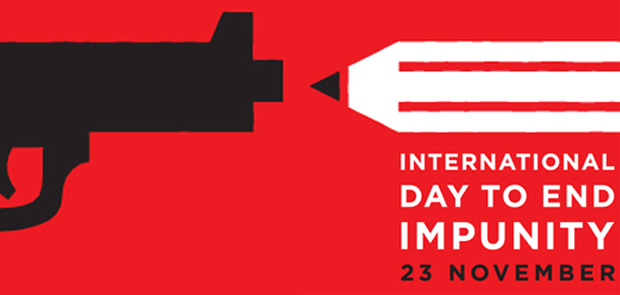
Impunity is a festering sore on freedom of the press. Harassment, violence and murder of journalists are problems around the world — even in Europe, as Index’s project mapping media violations has shown. The numbers speak for themselves: of the 370 media workers murdered in connection with their job over the past ten years, 90% have been murdered without their killers being punished. Many of these crimes aren’t even investigated.
Ahead of the International Day to End Impunity, journalists from across the world told Index why impunity is such a danger to free expression and a free press.
Kostas Vaxevanis, Greek investigative journalist, HOT DOC, and 2013 Index award winner
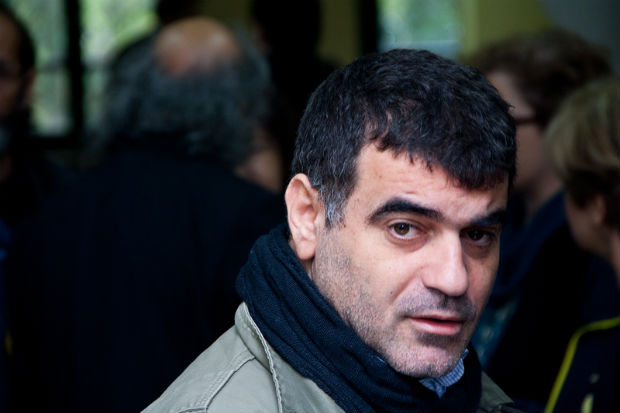
Impunity generates corruption and its enemy is the one thing that exposes and threatens it: the freedom of the press.
The HOT DOC is currently facing 40 lawsuits mainly from ministers and politicians in an attempt to shut us down as journalists. We reveal scandals like one with the minister of justice, a former judge who committed an “error” that granted amnesty to officials who had abused public funds, and instead of answering in public as required as politicians, we are being sued. We pester the courts and despite winning lawsuits, we need more than 80,000 euro per year for court expenses.
Heather Brooke, British-American journalist and 2010 Index award winner

It is a problem that journalists around the world get threatened, intimidated and killed just for doing their job.
These crimes, like any other crime, need to be investigated. If not, it sends a message that this is okay; that the law is only for certain people. It is an implicit acceptance of this behaviour.
If we want to have a strong press, threats, intimidation and murder of journalists can’t be seen to be implicitly condoned by the state. It’s a dangerous message. It makes people frightened to ask tough questions, and if that happens, you are on the way to shutting down a robust press.
Kareem Amer, Egyptian blogger and 2007 Index award winner

I come from a country where we have a lack of justice. The executive power controls the parliament and the justice system. People feel that if they get mistreated or oppressed by those in power nothing will protect them or bring them justice.
Not only people who express their opinions suffer from a lack of justice. People from different backgrounds who have a different way of thinking and different interests also don’t trust the justice system. Those who have more power can easily avoid punishment and take revenge against victims who tried to get their rights through judiciary system.
Officially, police officers don’t have any kind of formal immunity. According to the law they can be questioned if they violate the rights of people by torturing or murdering. But, in fact, all those accused of killing protesters and torturing prisoners managed to avoid being punished, with a few exceptions.
I feel that it’s not safe to express your opinions freely in a country where people can easily avoid punishment.
I have been sentenced to four years in jail for writing two articles and publishing them on the internet, and during that time I have been through physical violence and mistreatment committed by security forces. I reported it but no one has been questioned or punished. That made me feel that there is no justice in my country and that it is easy to be humiliated and tortured and you will not get protected, since the judiciary system is practically part of the executive power and the judges do what the authorities want them to do.
Rahim Haciyev, Azerbajiani journalist and acting editor of 2014 Index award winner Azadliq

Rahim Haciyev, deputy editor-in-chief of Azerbaijani newspaper Azadliq (Photo: Alex Brenner for Index on Censorship)
Freedom of expression is the basis of all other rights and freedoms. Free speech is something all authoritarian regimes are worried about as it threatens their existence. That is why freedom of expression is specifically targeted by authoritarian regimes. If there are no free people, there is no freedom of expression. Free speech is a precondition for journalists to be able to work in full strength and thus fulfill their functions in society. Authoritarian regimes organise permanent attacks on journalists with impunity. A free journalist armed with freedom of expression is a threat to an authoritarian regime, this is why perpetrators receive awards, not punishment for oppressing journalists’ rights. This process leads to self-censorship, and journalists stop being carriers of truthful information, which in the end affects society.
Nazeeha Saeed, award-winning Bahraini journalist, who was tortured in police custody
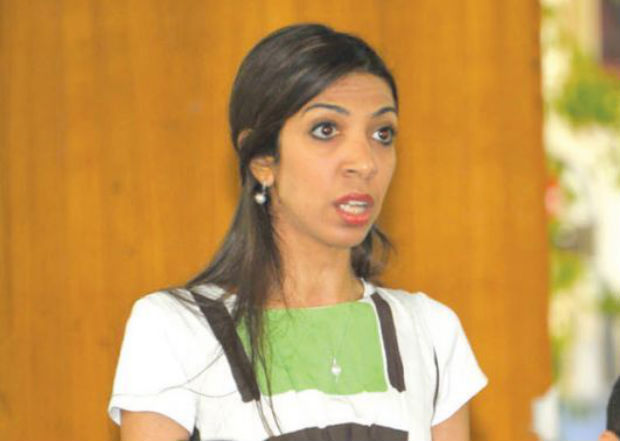
Impunity is a threat to free expression because journalists and people who report the facts on the ground will feel danger, and if no one gets punished for crimes against journalists or others it establishes a systematic impunity culture. Feeling insecure is something bad, it stops people from having a normal life, functioning and expressing themselves.
Endalk Chala, Ethiopian blogger and co-founder of the Zone9 blogging collective (of which six members are currently imprisoned for their writing)

Impunity is a threat for free expression on many levels. In my experience I have seen impunity when it cultivates self-censorship. Let’s take the case of Zone9 bloggers. Since their arrest there are a lot of people who tried to visit them in prison, take a picture of them, attend their trial and tweet about their hearings but all of these have invited very bad reactions from the Ethiopian police.
Some were arrested briefly, others were beaten and it has become impossible to attend the “trial” of the bloggers and journalists. No action was taken by the Ethiopian courts against the bad actions of the police even though the bloggers have contentiously reported the kinds of harassment. As a result, people have stopped tweeting, taking pictures and writing about the bloggers. Apparently, the volume of the tweets and Facebook status updates which comes from Ethiopia has dwindled significantly. People don’t want to risk harassment because of a single tweet or a picture. This self-censorship could be attributed to impunity, which is pervasive in Ethiopia.
Impunity also causes a lack of trust in the Ethiopian judicial system. I don’t trust the independence of the Ethiopian justice system. I have never seen a police man/woman or a government authority being prosecuted for their bad actions against journalists. The Ethiopian government has been prosecuting hundreds of journalists for criminal defamation, terrorism and inciting violence but not a single government person for violating journalists’ rights. This tells you a lot about the compromised justice system of the country.
Andrei Soldatov, Russian investigative journalist and co-founder and editor of Agentura.Ru

Russia is known for its traditions of self-censorship. Despite what the laws say, the rules are explained in a quiet voice in some unmarked cabinets. Sometimes the rules are even not explained, and journalists, editors and owners of media have to constantly guess what is allowed at that moment. Not everyone is allowed to ask directly, so we are all in the game about signals sent by the authorities.
Journalists are beaten and killed in Russia, and this provides plenty of room to send such signals to the journalistic community. You don’t need to explain that investigative reporting in the North Caucasus is not allowed anymore: you just need to turn the investigation of Anna Politkovskaya’s assassination in 2006 into a show trial, where the assassins are duly found guilty, but the question of masterminds is never answered. You could be sure, the signal would be taken correctly.
Fergal Keane, Irish journalist, BBC foreign correspondent and 2003 Index award winner

Impunity allows the enemies of free speech to threaten, torture and kill journalists secure in the knowledge they will never be called to account. I can’t think of a greater threat.
Veran Matic, B92 board of directors chairman and B92 news editor-in-chief
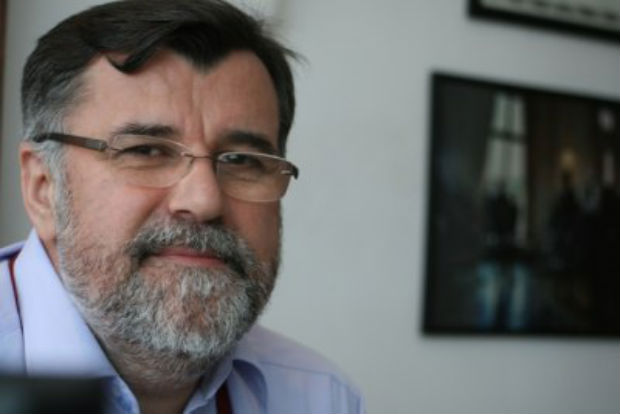
In my 25 years of experience in Serbia, I have been editor-in-chief of a media outlet that was banned on several occasions and I have been arrested.
Impunity directly encourages and expands violence towards journalists. The culture of producing fear is the most efficient form of censorship. One unsolved murder creates space for implementing the next one without any threat for the executioners. In the meantime, the media gets killed/eliminated in the process.
The lack of discontinuity with Slobodan Milosevic’s authoritarian regime had left room for impunity to remain intact.
Less than two years ago, I decided to make a kind of a breakthrough when it comes to impunity. I proposed the establishment of a mixed commission composed of journalists, members of the police and members of the security information agency. We managed to bring the 1999 murder of Slavko Curuvija to a phase where official indictment was brought, along with arrest of all suspects in this murder case. The 2001 murder of our colleague Milan Pantic is also in the final stage of investigation. A 1994 assassination — of Dada Vujasinovic — is being reviewed by the National Forensic Institute from The Hague because local institutions have compromised themselves in this case.
In the same way as impunity restricts freedom of speech, solving of these cases, at least 20 years later, will surely contribute to journalists being encouraged to do their job in the best possible way. Of course, I am not counting here on the new problems with which journalists and media face, and that call for finding new models of financing high quality journalism for the sake of public interest, worldwide.
The team behind Pao-Pao, a Chinese website focusing on internet freedom issues
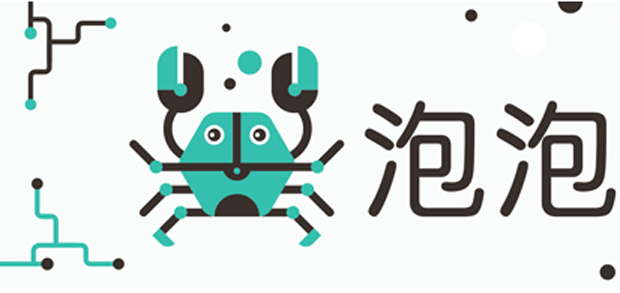
This year, we have seen a rising number of Chinese journalists, academics and human rights lawyers detained, threatened and arrested simply for speaking out online. While Chinese regulations on freedom of speech need to be closely examined, tech companies also play an important role in the deterioration of freedom of speech in China.
While Chinese tech companies are under the tight control of the Chinese authorities, there exists a culture of impunity in the western tech companies, especially when they are doing business in China. When we worked with our partner GreatFire to launch a FreeWeibo iOS application last year (an app to deliver uncensored content from Weibo, the largest social media platform in China), Apple decided to remove the app from their Chinese iTunes store. The only reason given was that Apple received a request from the Chinese authorities. This June, LinkedIn censored user posts deemed sensitive by the Chinese government on the global level, far beyond Beijing’s censorship requirement, even though LinkedIn does not have servers in China.
It would be the start of the end if these global tech companies start removing content simply because they do not want to upset their business relationships with China. It is crucial to hold these companies accountable for their behaviour. Otherwise it will further erode freedom of expression, not only for China, but also for the whole world.
The International Day to End Impunity was set up in 2011 by free speech network IFEX, of which Index on Censorship is a member, with the aim of demanding accountability and justice on behalf of those “targeted for exercising their right to freedom of expression”.
This article was originally posted on 21 November 2014 at indexoncensorship.org. It was updated at 14:09, 24 November to include the response from Pao-Pao.
21 Nov 2014 | Ecuador, Magazine, News and features, Politics and Society
Diana Amores’ Twitter account is currently suspended (@Diana_Amores). Is she a troll? Is she sending offensive pictures? No, she’s a translator based in Quito, Ecuador, with a tendency to post sarcastic comments about politics.
Diana is being targeted by Ares Rights, an internet reputation management company based in Barcelona. The trouble started earlier this year when she was being critical about the Ecuadorean government. Ares Rights filed complaints, claiming copyright violations and shut her down.
Why is a Spanish company concerned about what is being said about the Ecuadorean government? If you look at the individual complaints (and we have), Ares Rights has filed them on behalf of, variously, Ecuador’s governing party, Movimiento Alianza País; EcuadorTV (the state-run television station;) and even the president, Rafael Correa. The company has had various Twitter accounts suspended and documentaries pulled from YouTube. They have also targeted Buzzfeed and Chilling Effects, who wrote about Ares Rights specifically.
Is this an attempt by the state to silence critics? You can read the full, in-depth story here, from the last issue of Index on Censorship Magazine.
Diana’s latest Twitter suspension is on account of reports of “violent threats”. This is one of her alleged violent threats (translated from Spanish): “Today I received a notification of censorship from @Twitter and @Aresrights.” She included a screengrab of an email she received from Twitter saying AresRights had raised a copyright complaint. Again, it claimed to be filing this on behalf of Movimiento Alianza País (Correa’s party). This doesn’t prove they are contracted, but neither party have responded to Index’s call for clarification for our recent feature.
On Wednesday, there was an opposition march in Quito. Diana wanted to tweet from it. She couldn’t.
At the march, protesters held up a message to the government: “We are not afraid anymore”. President Correa has been accused of trying to intimidate critics. He has successfully pursued several libel lawsuits against the media since introducing his controversial communications law in 2013.
One of the early targets was a political cartoonist, Bonil. His newspaper, El Universo, was fined $92,000 over one of his cartoons. Now, 11 months on, Bonil is currently responding to a new complaint and fearing an even bigger fine.
You can read Bonil’s story – with a new cartoon by him highlighting the censorship of cartoonists – in the next issue of Index on Censorship magazine.
This article was published on 21 November 2014 at indexoncensorship.org
20 Nov 2014 | Media Freedom, Press Releases, Statements
November 2014 (PDF)
As a UK-based organisation dedicated to the promotion of free speech and elimination of censorship worldwide, Index on Censorship is pleased to have the opportunity to provide feedback on the documents that proposed press regulator IMPRESS has drawn up ahead of its formal launch. Index also made written and oral representations to The Leveson Inquiry on the culture, practice and ethics of the press.
IMPRESS asked specific questions, to which Index has responded below. Our comments should be in no way seen as an endorsement – or indeed – a rejection of IMPRESS.
1. Do these documents meet the criteria set out in the Leveson Report, as distilled in the Royal Charter on Self-Regulation of the Press, for an independent and effective regulator? How might they be improved in this respect?
These documents reflect in large part the criteria set out in the Leveson Report and even more closely the requirements outlined in the Royal Charter on Self-Regulation of the Press, particularly on the important question of redress through swift and transparent complaints and arbitration procedures.
However, Index remains concerned that the independence and efficacy of a regulator will not be guaranteed by seeking recognition from an oversight body established by Royal Charter. A Royal Charter – though arcane – remains a political instrument. Royal Charters are established by Her Majesty’s Most Honourable Privy Council, the bulk of whom are politicians, including serving members of government. Though we accept that the Recognition Panel is conceived in a way that is intended to demonstrate absolute independence from government control, the establishment of an oversight
body through such an obscure piece of political machinery is not a mechanism likely to inspire the public trust and confidence required by the public. The whiff of undemocratic, non-transparent political involvement in the creation of the regulatory body has tainted it from the outset.
As the Privy Council says on its own website: “…once incorporated by Royal Charter a body surrenders significant aspects of the control of its internal affairs to the Privy Council. Amendments to charters can be made only with the agreement of the Queen in Council, and amendments to the body’s by-laws require the approval of the Council (though not normally of Her Majesty). This effectively means a significant degree of Government regulation of the affairs of the body, and the Privy Council will therefore wish to be satisfied that such regulation accords with public policy.” (our italics)
There is little clear evidence that the Recognition Panel, as currently conceived, would restore public trust in the British press, or indeed behave in a way that would hold a regulator successfully to account, as scandals involving the oversight of other independent regulators, such as the Care Quality Commission, have shown. A study by the Media Standards Trust has shown that more than 70% of the public believe that it is important that a new system of press self-regulation is periodically reviewed by an independent commission, but it is by far from clear that the public believes that this should be a Recognition Panel established by Royal Charter. An opinion poll conducted by Survation in April 2013 found that 67% of those surveyed concurred with a statement that any regulatory system should be set up ‘in a way that does not give politicians the final say if and when changes need to be made’.
In addition, Index remains concerned that, aside from the Royal Charter, other elements of legislation introduced in the wake of the Leveson Report represent a threat to media freedom. One of the most worrying of these is section 42 (3) of the Crime and Courts Act 2013, which sets out that an organisation which does not join a recognised regulator but falls under its remit (through being considered a “relevant publisher”) will potentially become subject to exemplary damages should they end up in court, and could also be forced to pay the costs of their opponents.
There are two principles here that threaten a free press. Firstly, that in effect joining a regulator becomes less than voluntary if you have the threat of punitive damages hanging over your head. Secondly, that those who do not join and therefore feel under threat of exemplary damages will skirt away from controversial subjects and investigative journalism, and opt instead for “safe” stories.
Such measures could be especially punitive for small publishers and news organisations with limited financial means. This has a damaging effect on free expression.
Supporters of this aspect of the act argue that exemplary damages would only apply to “reckless” action by journalists, but it is possible that a court could find that a breach of Article 8 rights to privacy and reputation was by definition “reckless” even when a journalist was pursuing an investigative news story in the public interest.
2. Do these documents (in particular the ‘sunset clause’ in the Mem & Arts) serve to protect the regulator’s independence from potential interference by politicians or civil servants? How might they be improved in this respect?
The memorandum and articles skirt around the issue of whether IMPRESS would seek recognition under the charter although it is made clear in other documents that IMPRESS would seek recognition. For the reasons outlined above, Index believes that IMPRESS should not seek recognition under the Royal Charter and that a robust ethics code, financial independence, and demonstrations of efficacy (i.e. participants shown to be held to account; swift and cheap arbitration) are the only ways in which the independence of the regulator will be truly demonstrated.
3. Do these documents serve to protect the regulator’s independence from potential interference by subscribing publishers? How might they be improved in this respect?
It is unclear from the documents supplied by IMPRESS what precisely the relationship would be between the funding mechanisms for IMPRESS and the regulator itself. The implication of the documents is that the regulator would be funded by participants (as with IPSO) but (unlike IPSO as currently envisaged) these participants would have no further role in setting the agenda for IMPRESS or carrying out its duties.
Complete transparency over the regulator’s funding is vital for its success. The agreement between participants and regulators should state explicitly that the funders can have no role whatsoever in the operations of IMPRESS or in its decision-making. Clear and total separation between the funding of the regulator and the regulator itself is vital to ensure press freedom.
The IMPRESS website identifies a number of current funders of IMPRESS but no details are given outlining the expected cost of running the regulator or the regulator’s financial plans. This raises the question of how the body can ensure it will be adequately funded — and therefore its long-term sustainability — should participants decide, for whatever reason, that they are no longer happy with the decisions being taken by IMPRESS. This should be clarified, along with greater detail on the projected cost of the regulator and its intended sources of income.
One mechanism that could help improve public confidence in the industry as a whole might be to make subscription open to individual journalists. This would mean the public could be assured that the body represents the press as a whole and would help IMPRESS to cover a fuller range of publishers who might be covered by the Crime and Courts Act.
4. At the same time, do these documents serve to give subscribing publishers confidence in the regulator’s operations? How might they be
improved in this respect, without compromising the regulator’s independence from the news industry?
It is unclear from the documents provided by IMPRESS whom it considers to be a likely member. The Crime and Courts Act sets out four cumulative criteria which must be met by a publisher to satisfy the definition of relevant. A publisher must:
. Publish “news-related material” (see below)
. Publish “in the course of a business” (whether or not carried on with a view to profit)
. [Produce material] “written by different authors”, and
. [which is] “subject to editorial control” (over the content of material, presentation
and the decision to publish).
Schedule 15 of the Act exempts publishers including broadcasters, public bodies, charities, micro businesses, and those who publish special interest titles, scientific and academic journals, company news publications, and books. But as English PEN has shown (‘Who joins the regulator: A report on the Crime and Courts Act on publishers’), a number of small publishers may nevertheless be caught in the net and there remains a “dangerous” level of uncertainty about the definition of “relevant”. Index has serious concerns that the implication of this, as detailed above, is a restriction on
investigative and challenging journalism.
5. Do these documents provide clarity about the regulator’s procedures? How might they be improved in this respect?
More clarity in the Procedures document regarding; the internal ombudsman; the complaints handling procedure; and conditions of joining, would be welcome. In its prospectus, IMPRESS states: “The regulator will not receive complaints directly unless or until the internal complaints system has been engaged without the complaint being resolved in an appropriate time.”
6. Do the IMPRESS/CIArb Arbitration Rules serve to give potential litigants in a relevant action confidence in the scheme’s capacity to provide access to justice? How might they be improved in this respect?
Index would suggest that IMPRESS consider the Alternative Dispute Resolution mechanisms outlined in the submission by the Alternative Libel Project, a collaboration between Index on Censorship and English PEN, which include suggestions on Early Neutral Evaluation. Details can be found here.
—
In conclusion, Index welcomes attempts by all the sides of the press to better self-regulate in ways that both protect the independence of the media and the free speech rights of the broader public. However, we remain opposed to the Recognition Panel as established by Royal Charter as the mechanism through which oversight of any regulator should be achieved, and deeply concerned that punitive measures such as exemplary damages negate any notion of a recognised regulator being voluntary.
—
This material can also be found in PDF here.
20 Nov 2014 | Ireland, News and features, Politics and Society

Gerry Adams is the leader of Sinn Féin, the party currently polling higher than any other in Ireland. Last week, Adams, who for many years had the very sound of his voice banned from the airwaves in both Ireland and Britain, due to his connections with the illegal Provisional IRA, told a funny little story at a fundraiser in New York.
Discussing one Irish newspaper’s hostility to his party, Adams told the assembled of how Michael Collins, the Irish War of Independence leader, had dealt with the Irish Independent:
“He went in, sent volunteers in, to the offices, held the editor at gunpoint, and destroyed the entire printing press. That’s what he did. Now I can just see the headline in the Independent tomorrow, I’m obviously not advocating that”, said Adams.
As with much half-remembered Republican mythology, this wasn’t the whole story. As Ian Keneally, author of The Paper Wall: Newspapers and Propaganda in Ireland, 1919-21, related in the Irish Times, the Irish Independent had been broadly sympathetic to the cause of Irish freedom throughout the War of Independence, while deploring individual acts of violence. In the case Adams alluded to, a group of IRA men had indeed entered the Irish Independent offices and threatened the editor, Timothy Harrington, after the paper described a failed IRA ambush as “a deplorable outrage”. The leader of the IRA grouping, Peadar Clancy, said that the newspaper had “endeavoured to misrepresent the sympathies and opinions of the Irish people”. While some damage was done to the Irish Independent’s printing presses, the paper did not shut down.
Ironically for Adams, given his invocation of the fabled Michael Collins, the Irish Independent found itself in deep trouble with British forces for publishing a letter by the IRA leader in December 1920. On that occasion, British “Auxiliaries” entered the newspaper’s offices and literally held a gun to a staff member’s head, warning the paper never to print anything by Collins again. The threat worked.
Historical rigour aside, Adams’s comments obviously didn’t find much favour among journalists. The World Association of Newspapers wrote to Adams calling on him “to retract these comments and to publicly affirm your abhorrence of all forms of violence against journalists”. Adams has refused to do so, citing the hypocrisy of attitudes to the Collins & Co war-of-independence era IRA and the modern (now, we are told, departed) Provisional IRA. In this, he may have a small point, though this is an issue for Irish society at large and not just the newspapers (this cartoon captures that problem neatly).
One could excuse Adams’s allusions as the work of the mind behind his famously quirky, often tongue-in-cheek Twitter account, but there are several background issues that make the whole thing a little uncomfortable.
Firstly, the newspaper group involved has lost two journalists to gunmen in the past 20 years: Veronica Guerin of the Sunday Independent, murdered by gangsters in 1996, and Martin O’Hagan of the Sunday World, shot by loyalist paramilitaries in 2001. Jokes about threats to the Independent News & Media journalists carry that baggage, even if unintended.
Secondly, Adams and his party are currently under scrutiny over an alleged IRA sexual abuse cover up. A woman named Maria Cahill – a relative of Provisional IRA founder Joe Cahill – claims that she was raped by an IRA member, and that the organisation subsequently attempted to cover up the crime. Cahill claims she raised the issue directly with Adams (who, it should be stated for the record, says he has never been a member of the IRA, but nonetheless is viewed as the leader of that particular strand of Irish republicanism), but that justice was not done. Adams’s has already faced criticism for the alleged cover up of his brother Liam’s paedophilic assaults on family members.
Thirdly, Ireland is a country on edge at the moment. The Fine Gael/Labour coalition government’s disastrous handling of proposed water metering and charges has led to previously rarely seen nationwide protests. Having almost cast the previously dominant Fianna Fáil party into oblivion in 2011, Irish voters had hoped they could put faith in a new government. But now, once again, they feel lied to by politicians who do not seem to have the wishes of the population at heart. The perception is that the new water metering system is just another assault on people who have suffered enough after years of boom, bust and bank bailouts.
Into this already toxic mix comes media mogul Denis O’Brien, owner of, among other outlets, the Irish Independent. It is widely believed that O’Brien is supportive of the new watering metering system as Irish Water will eventually be privatised, and he will buy it. O’Brien has a stake in Siteserv, the company contracted to install water meters.
It is not a huge leap to imagine that O’Brien’s papers may be enthusiastic about water charges, and perhaps unsympathetic to protesters. And it’s not difficult to imagine anger being turned against Independent group journalists. After pictures of a brick being thrown at a Garda [police] car during a water protest in Dublin last week were published by the Sunday Independent, many online claimed the image had been photoshopped by the mendacious “Sindo” . This was clearly untrue, but the rumours demonstrated the distrust of institutions, including the press, that now permeates Irish society, and from which upstart Sinn Fein stands most to gain. Former Sinn Féin publicity officer Danny Morrison subsequently tweeted the address of Independent Newspapers, along with a picture of a wall missing a brick. Was he adding to the conspiracy theory? Or was he suggesting violent action against the Independent, in classic I-know-where-you-live style? See how easily the close-up nature of Irish media, politics and public life can set the mind racing?
The government has now proposed new water measures, which it hopes will quell the unrest. But the anti-press, anti-politics rhetoric may have gone too far for that, and in the run up to the centenary of Ireland’s “revolutionary period” of 1916-1923, when romantic rebellion ruled all, little will be gained by any party attempting to present itself as the voice of a reasonable settlement.
This article was posted on 20 November 2014 at indexoncensorship.org












